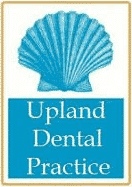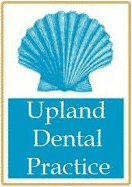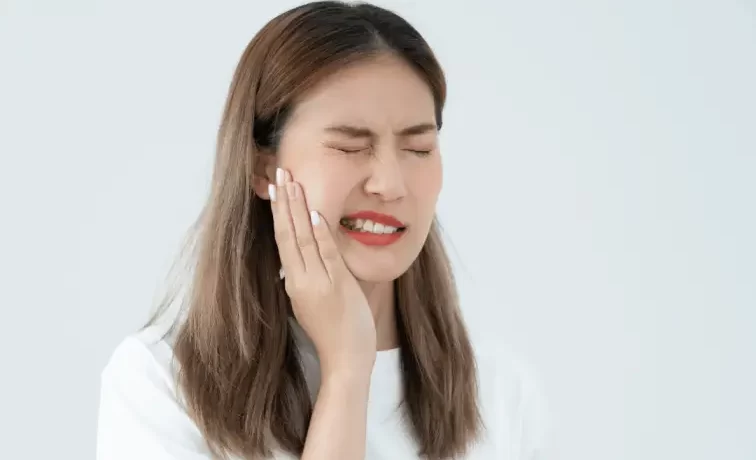Imagine the irritating sensation that shoots through your tooth when you bite your favorite ice cream. This probably feels very familiar if you had a dental filling done before.
While dental fillings are necessary to treat cavities, often an annoying side effect of fillings is increased sensitivity in the tooth.
Ever wonder why?
We’ll uncover the reasons in this article and provide some useful tips that will help you manage and reduce this irritation, keeping your teeth healthy and pain-free.
Understanding Sensitivity After Fillings
It’s normal to have nerve sensitivity after a filling. During the procedure, the dentist removes decayed tissue and fills the cavity, which can irritate the nerves inside your tooth. This irritation usually causes temporary sensitivity.
Usually, sensitivity should lessen within a matter of a few days to up to a few weeks. Numerous factors can influence this. Deeper cavities can cause more irritation and longer recovery times. It can also be the material that is placed within a tooth. Different materials, such as amalgam or composite, might affect how quickly your tooth settles down.
Sometimes, sensitivity can persist or even appear later. Why might this happen?
Mainly this is because of the food you consume. You might notice sensitivity when chewing, especially if the filling is slightly high and needs adjustment. Hot or cold foods and drinks can trigger sensitivity.
It is also because the filling is not still fully integrated with your tooth. This will cause you discomfort as the filling sets.
Deeper fillings, in certain cases, can be closer to the tooth’s nerve and thus may take longer to settle down. Deep fillings can take several weeks or even months for the sensitivity to completely disappear. The closer the proximity to the nerve, the more potential for irritation, leading to a longer adjustment period.
Understanding Pain After Fillings
One of the main reasons for pain after filling is irritation of the nerve by the filling.
A filling that is too high can put pressure on your tooth when you bite down and can cause sharp pain in the tooth. Sharp pain indicates that the filling is affecting your bite alignment. In most cases, this can be fixed by a dentist in Upland, California by adjusting the filling.
You may experience throbbing pain (rhythmic and pulsing pain). This usually occurs due to nerve irritation. Deep fillings, close to the nerve, often result in more intense pain and take longer to settle. Pressure sensitivity when chewing and sensitivity to hot or cold foods also may occur, but generally are more short-lived.
When aching is present (continuous, dull, and persistent sensation). It often indicates that the tooth is still adapting to the new filling.
Tips to Manage Post-filling Pain
If you experience discomfort and pain after getting a filling, you can follow these tips to help you manage it better.
- Rinse your mouth with warm saltwater to reduce inflammation and soothe the discomfort.
- Avoid hard foods that take longer to chew. This may put high pressure on the filled tooth.
- Put a cold compress against your cheek on the same side as the filled tooth.
- Over-the-counter pain meds, like ibuprofen or acetaminophen, may be used to treat mild or moderate pain.
- Use desensitizing toothpaste, such as Colgate Sensitive and Sensodyne. This can block the paths the pain would take to the nerves.
- Fluoride mouthwashes like Sensodyne and Listerine Sensitivity can be used to help strengthen tooth enamel and reduce sensitivity.
- For composite fillings, avoid extremely hot and cold foods and drinks, and use a soft-bristled toothbrush to avoid irritation.
Take note! Prolonged and severe pain often can be an indicator of other issues, like a poorly placed filling. In such a case, your dentist might replace your filling if necessary. If the pain persists for longer than a couple of weeks or becomes severe, contact your dentist in Upland. If you experience signs of infection, like fever or abscess, you need to visit your dentist right away.
Aftercare and Recovery
Proper dental filling aftercare is crucial in recovering well and reducing the chances of complications. Follow these aftercare guidelines, so you can ensure a smooth recovery.
Dos
- Eat soft foods and liquids for the first 24 hours. You can eat soft foods such as yogurt, mashed potatoes, and soups for the first several days so as not to put too much pressure on the new filling.
- Brush and floss regularly. Be gentle around the filled tooth, so as not to irritate it. You may use desensitizing toothpaste, such as Sensodyne or Colgate Sensitive.
- Monitor the tooth for signs of complications, such as severe pain, prolonged sensitivity, or swelling. Make an appointment with your dentist if you notice any of these.
- Chew on the opposite side of the mouth away from the filled tooth. This avoids discomfort and prevents the filling from damage or dislodgment.
Don’ts
- Teeth with new fillings are very sensitive. It is wise to avoid hot or cold foods and beverages for a couple of days after the process.
- Avoid sticky foods (such as caramel and chewing gum) and hard foods (nuts and candies), these can dislodge the filling.
- Do not use the filled tooth for chewing. This helps prevent discomfort and allows the filling to set properly.
Proper care helps in healing and maintains a filling for a long time, keeping teeth healthy and functional.
Avoid Bad Fillings with the Right Dentist in Upland, CA
If you experience severe sensitivity, pain, or other symptoms like a fever after getting a dental filling, it’s important to contact your dentist.
It’s quite normal to experience some pain after having a dental filling, but in most cases, it’s temporary. The key here is to ensure that you have great dental work done, and that is where a competent dentist comes in.
So, what are you waiting for? Schedule an appointment with us at Upland Dental Practice. We are here to give you professional and trustworthy dental care, and your dental health is our topmost priority.
Need to Talk to Our Dentist?


